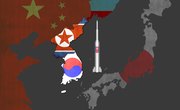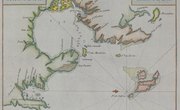Brazil’s participation in World War II was the culmination of a foreign policy emphasis that began in 1902. That year, Foreign Minister Rio Branco set Brazil on a course of close relations with the United States. He believed that ties with the United States, a growing world power, would promote Brazil’s aims at leadership in the Latin American region and provide international prestige.
Geopolitical Situation
After the 1930 revolution and 1937 coup that brought Getulio Dornelles Vargas to power, Brazil’s political priorities were industrialization and the build up of military power. The country balanced its relationship with the United States through closer ties with the Axis powers of Nazi Germany, Italy and Japan. Germany became the biggest buyer of Brazil's cotton and its main supplier of weapons. Brazil’s leading politicians were divided between “pro-USA” and “Pro-Axis” factions. Concern that the Latin American region could shift away from the United States politically prompted the administration of President Franklin D. Roosevelt to launch its "Good Neighbor" policy of cultural and economic assistance in place of an earlier policy of direct intervention in Latin American affairs.
Military Bases
Brazil and the United States adopted neutral positions in September 1939 on the outbreak of war in Europe. However, the United States became concerned about a potential German attack on the Western Hemisphere should Britain fall, figuring the most likely route for this to be from North Africa to northeastern Brazil. In 1941, Brazil agreed to the construction and enlargement of American air bases in northern and northeastern Brazil. When the United States entered the war in 1941, the U.S. Navy was allowed to use Brazilian ports in its anti-submarine campaign. The air bases became an essential part of the Allied air transport system, a stopover for planes heading to Africa, the Mediterranean and points beyond.
Raw Materials and War Declaration
Brazil supplied iron ore, manganese, bauxite, tungsten, industrial diamonds and especially rubber to the United States during World War II. The Japanese occupation of Southeast Asia had halted 90 percent of world rubber supplies. Brazil received $100 million in arms and military equipment under the Lend-Lease Program, through which the United States supplied its allies. Brazil’s close cooperation attracted attacks on its merchant shipping by Axis submarines. Italian and German submarines sank a total of 36 Brazilian merchant ships by August 1942 when Brazil declared war on the Axis powers.
Expeditionary Force
After an initial reluctance to commit troops to the war effort, Brazilian politicians decided that their country’s direct participation would achieve it a special status after the war. The Brazilian Expeditionary Force started as a political project to make Brazil a “special ally” of the United States. Britain opposed the involvement of Brazilian troops partly because of perceived pro-Axis sympathies of some Brazilian politicians, and partly because of troops of too many nationalities in the Mediterranean Theater. Doubts that the BEF would be deployed in combat at all led to its nickname "the Smoking Cobras." This referred to a Brazilian saying, equivalent to “pigs might fly,” stating that it would be more likely for a snake to smoke than for the BEF to be deployed. As a result, the BEF insignia was a coiled cobra with head upright and smoking a pipe.
Deployment in Europe
The U.S. government considered deploying the BEF in southern Brazil on the Argentine frontier following coups in Argentina in 1943 and 1944, and a 1943 Argentina-inspired coup in Bolivia. However, the Americans conceded to BEF deployment in Italy because of Brazilian wartime cooperation. A total of 25,335 Brazilian troops came under the command of the U.S. Fifth Army. They fought in battles at Castelnuovo, Monte Castello and Montese in the Apennines south of Bologna. Brazilian military and political leaders rejected Allied offers to remain as an occupying force in postwar Europe. In late 1945, the FEB returned home and was disbanded.
Related Articles
References
- University of Miami: Tradition and Variation in Brazilian Foreign Policy
- Ministry of External Relations Brazil: Brazilian Foreign Relations 1939-1950
- Tel Aviv University: Brazil and World War II: The Forgotten Ally. What Did You Do in the War, Ze Carioca?
- BBC: Brazilian World War II Workers Fight for Recognition
- Hydro International: Sunk WWII German U-Boat off Brazil
- The Daily Sentinel: Flying Pigs, Smoking Snakes and Steinbeck
Resources
Writer Bio
Based in London, Maria Kielmas worked in earthquake engineering and international petroleum exploration before entering journalism in 1986. She has written for the "Financial Times," "Barron's," "Christian Science Monitor," and "Rheinischer Merkur" as well as specialist publications on the energy and financial industries and the European, Middle Eastern, African, Asian and Latin American regions. She has a Bachelor of Science in physics and geology from Manchester University and a Master of Science in marine geotechnics from the University of Wales School of Ocean Sciences.











